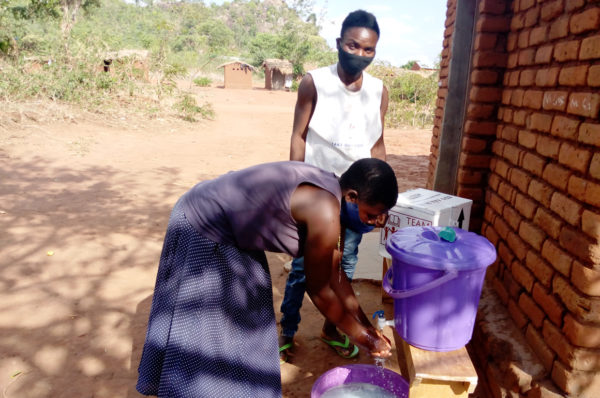A vast number of children and young people have been affected by school closures worldwide due to the COVID-19 pandemic. And all of Link’s partner countries – Ethiopia, Malawi, Rwanda and Uganda – have nation-wide school closures in place.
Access to a quality education is the first step in empowering a new generation in Africa. As the crisis surrounding the coronavirus unfolds, we are working hard to adjust the way our teams work to keep themselves and others safe. We have adapted our plans to ensure that children and young people continue to learn and are able to return to school safely when they reopen.
With school closures and restrictions on gatherings we are unable to continue with school-based activities or deliver face to face training. However, our work continues as normal where possible, including:
- Developing and improving training materials for teachers and community partners
- Liaising remotely with government partners to support and develop inspection and management tools
- Distributing bursaries to the vulnerable girls most at risk of abuse, early marriage, or dropping out of school
To assist with immediate needs, we’ve added information on life-saving COVID-19 protection measures to our usual radio programmes on inclusion, safeguarding and education rights, and supported food and soap distribution to rural communities.

In the event of schools remaining closed for several more months, we are exploring safe, low-tech distance learning opportunities via radio or worksheets so that education continues and children and their families remain engaged in learning.
Based on our rigorous rapid needs assessments, safely conducted with learners engaged in our programmes, we have gathered useful evidence to support not only our project responses, but also support wider response efforts. Some of the preliminary findings include:
- Over 70% of learners have basic writing materials at home with them to help them continue studies
- More than 48% of learners lack access to radios when radio broadcasting is being used as a primary method of continuing education. Additional evidence shows that, among the most marginalised, access is even lower
- The majority of learners surveyed in Ethiopia have received crucial messages from Link and other partners about what they can do to protect themselves from COVID-19
- More than 20% of learners have expressed that they feel more anxious or worried since their schools have closed
Across our COVID-19 response, we are coordinating with partners, the wider sector and government at local and national levels to ensure efficient, appropriate and timely support is provided. Critically, this is a global crisis and as such it requires a coordinated global response.
Beyond the immediate effects on learning, a humanitarian crisis looms that risks undoing much of the progress that the global community has made fighting extreme poverty and under-resourced education systems.
Women, girls and people with disabilities will be the hardest hit as vital services come under pressure and child marriage, pregnancy and discrimination present an increased risk.
Link is acutely aware of these challenges and we won’t rest until we have done all we can to help.
As in all our work, we continue to ensure our programme activities provide a sustainable, long-term solution and support communities through this crisis whilst taking the most vulnerable along with us.
